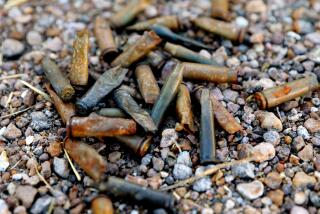Starting From Scratch in Nicaragua : War Bled the Economy of Everything, From Money to Patience
- Share via
MANAGUA — In an optimistic scenario in 1981, the World Bank projected an accumulated economic growth of 37.2% from 1981-1986 for Nicaragua, with exports achieving a level of more than $1 billion. Actually, the figures were 9% and $225 million, respectively.
The explanations for such a dim performance include mistakes in economic policies, the reluctance of the private sector to invest, economic disarticulations typical of countries in process of transition, and inefficiencies associated with the inexperience of a new state in process of formation, as well as the negative effects of the international economic crisis.
Most experts agree, however, that one other factor is dominant: the U.S. policy of aggression against Nicaragua, which has included a financial and commercial blockade, the mining of ports, diplomatic isolation and the financing of the Contra war. This weighs more heavily than anything in terms of damage inflicted on the economy and in the long-lasting consequences of economic distortions and problems caused by the defense effort. The Nicaraguan government’s own estimates of direct and indirect damages place the figure at $3.3 billion from 1981 to mid-1987, with the loss of 40,000 lives on both sides, for a country with a gross national product of $2.3 billion a year, and a population of 3 million.
If peace were to flourish--a most desirable objective for most Nicaraguans and their government--a quick economic recuperation could be expected. However, that is not a likely or easily obtainable outcome.
The main immediate obstacle that the economy would confront is the need for foreign exchange--for working capital to reactivate the agricultural and industrial sectors. The latter is badly deteriorated and in need of parts, repairs or outright replacements. Most recent external financing has come in the form of lines of credit, not entirely compatible with Nicaragua’s domestic needs.
The current peace plan being pursued by the five Central American governments proposes a regional appeal for aid from the international community. At present, there are no clear signs of the magnitude or possible source of such aid. The government in Washington wants to remove, not assist, the present government in Managua; the Latin Americans are in a debt crisis themselves, and the Europeans are full of good intentions but, apparently, insufficient resources. Under these circumstances, analysts cannot afford to be terribly optimistic.
If diversified external resources are not forthcoming, Nicaragua will have to continue depending mainly on socialist countries and lines of credit, with not much hard currency at hand. Economic growth in the medium term would be sluggish, at best, until a more advanced stage of technological reconversion takes place.
At any rate, problems do not stop there. Even if, in the best of cases, adequate external resources are forthcoming, the Nicaraguan economy can be only gradually adjusted. Political opponents and private-sector entrepreneurs, suddenly launched to the forefront of public notice by the August peace agreement, might have unrealistic expectations and be more inclined to demand short-term results in order to keep in line with the agreement.
Because of these factors, government policy will be under much strain. In addition, it has the challenge to accommodate a national consensus, to build up confidence in terms of being able to manage the economy and to fulfill its commitment to widen the existing democracy. And this must be done in a context in which not all the actors accept, or are aware of, the realignment of internal political forces that has occurred during the years of the revolution. Contrary to what the Reagan Administration has portrayed, there has been a growing process of democratization and politicization in Nicaragua, especially among the traditionally ignored popular sectors, which account for the majority of Nicaraguans. Even as the Sandinistas have promoted this process, the government has had to mediate the antagonism between these sectors and private entrepreneurs.
At this point in our history, favoring the entrepreneurial part of the private sector at the expense of the popular sectors would be beyond any government’s ability. And, compared to the Sandinistas, the political parties here are weak in leadership, organization and ideological platform. Perhaps not being in power has something to do with it, but a good part of the fragmentation of the opposition is explained by the nature of middle-class Nicaraguans: They lack commitment, are not generally fond of politics, and they’d rather have a tranquil or at least less risky individual existence.
More than anything else, to achieve peace in the present situation, Central Americans will need virtues not recently practiced in this region--patience, tolerance and long-term vision--however difficult this happens to be where centuries of history have taught us to be mistrustful to one another. Nevertheless, compromises seem to be the order of the day. This means the subordination of particular interests to the ultimate objective: peace and stability.
Central Americans are aware that without peace and stability, there will be no reactivation of foreign or domestic investment, no progress and no future for the large majority and poorest sectors of the region’s 24 million people. At present, their governments seem to feel overburdened with the costs and risks of the U.S. policy of counterinsurgence in the region. In light of the traditional erratic nature of U.S. foreign policy, and with the Reagan Administration soon coming to an end, Central Americans have decided instead to end conflicts among themselves through negotiations backed by the international community. The United States could contribute to this possibility, and to its standing in the region, by showing respect and real support for this effort.
More to Read
Sign up for Essential California
The most important California stories and recommendations in your inbox every morning.
You may occasionally receive promotional content from the Los Angeles Times.









